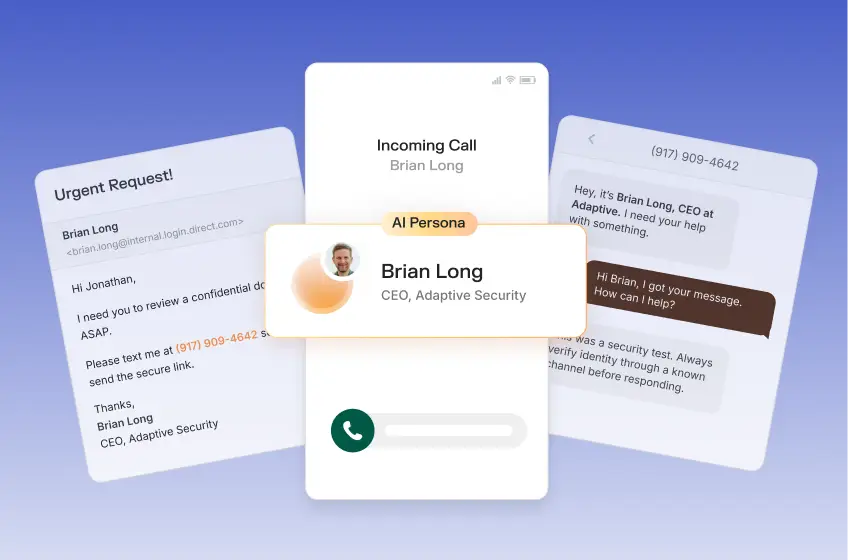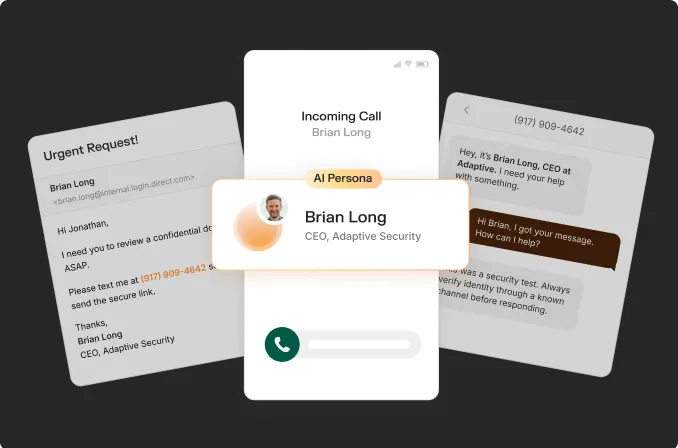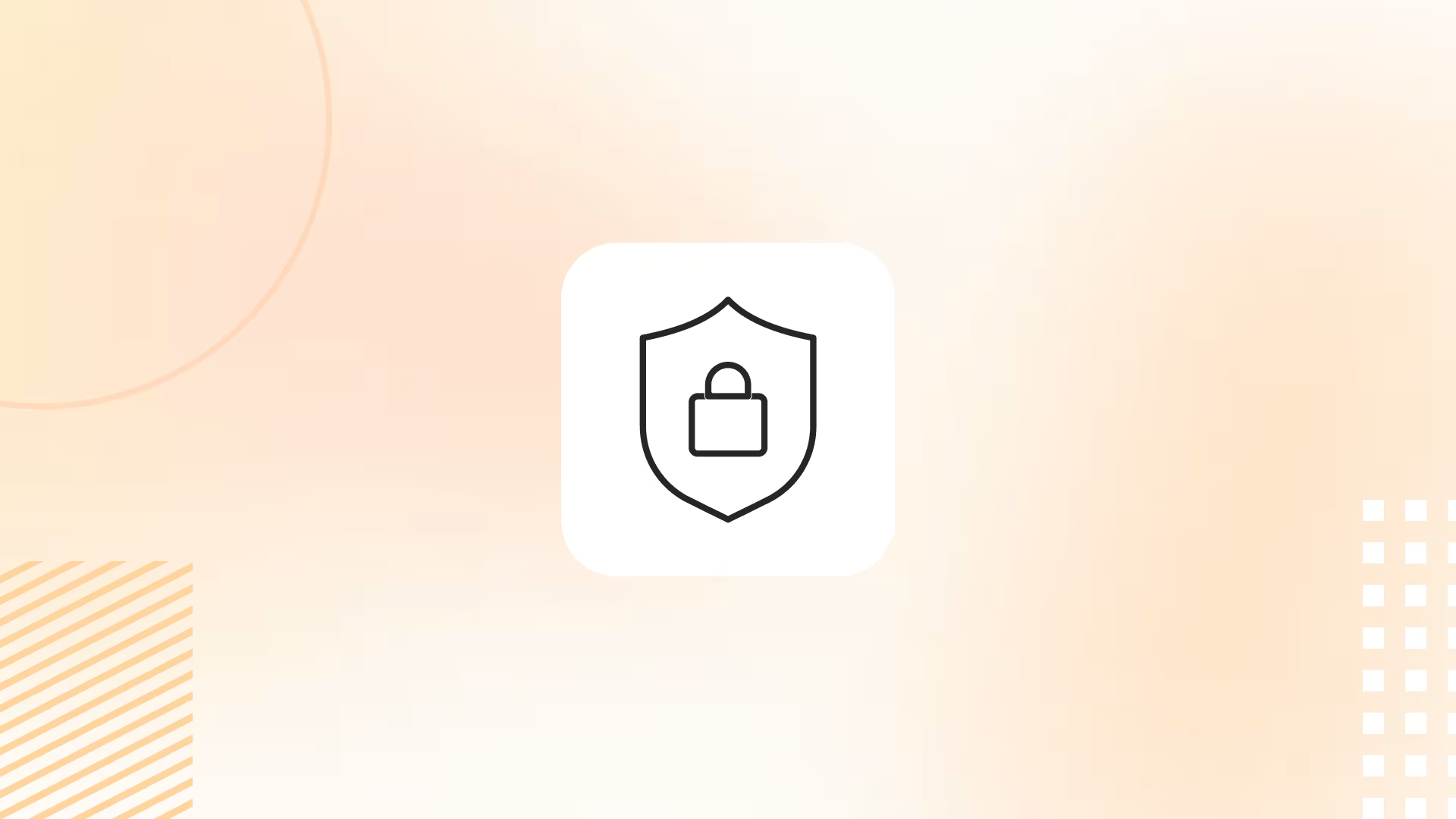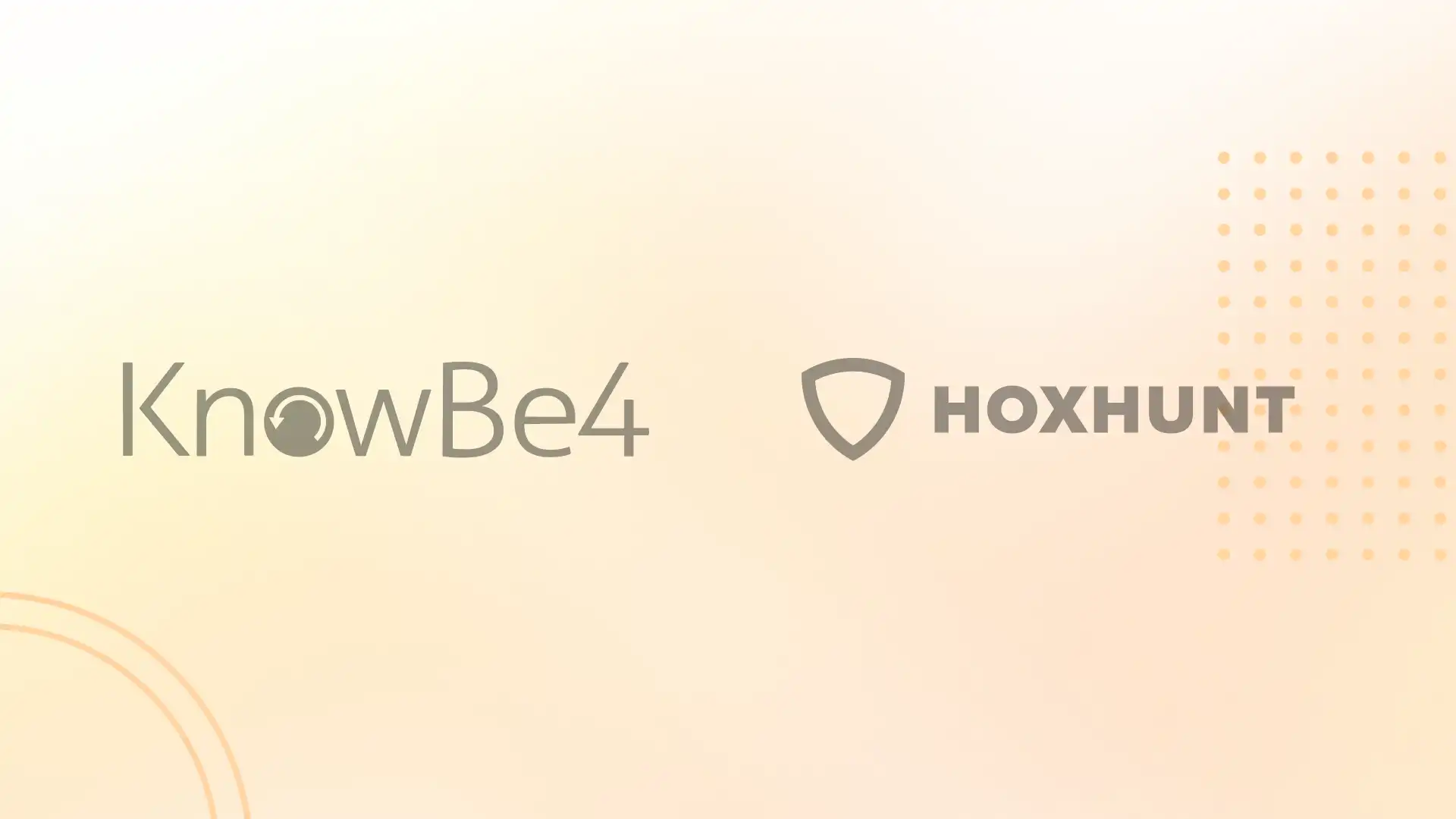A finance manager receives an email marked “urgent” from their CEO, asking them to review an attached invoice. Everything looks authentic—yet the message is an AI-crafted lure. Within minutes of clicking, attackers are inside the network.
AI has made phishing and social engineering cyberattacks like this faster, smarter, and harder to detect. IBM’s 2025 Cost of a Data Breach report shows that 1 in 6 breaches now involve AI-driven tactics. You can’t rely on filters alone—the people behind the screens need the awareness to catch what technology misses.
Security awareness training (SAT) software helps close this gap. The best tools recreate real-world threats, track how people respond, and adapt as new risks emerge. This is the essence of adaptive security: defenses that learn and evolve in real time. With this approach, you gain a clear view of your biggest exposures and the ability to fix them before attackers strike.
Here, we review 15 leading SAT solutions for 2025 and beyond, with their strengths, limitations, and best-fit use cases to help you choose the right platform.
Top security awareness training platforms in 2025:
- Adaptive Security
- KnowBe4
- Proofpoint
- Cofense PhishMe
- Infosec IQ
- Mimecast Awareness Training
- Arctic Wolf
- Huntress
- NINJIO
- SANS Security Awareness
- Hoxhunt
- MetaCompliance
- SoSafe
- Phished (Phish.io)
- ESET Cybersecurity Awareness Training
Top 15 security awareness training software solutions for 2025 and beyond
The cybersecurity landscape demands more than generic training modules. Today's most effective platforms combine AI-powered personalization, real-time threat simulation, and behavioral analytics to create training that actually sticks. Let's dive into the top contenders.
1. Adaptive Security
Adaptive Security leads the market in preparing organizations for the next wave of AI-driven cyber threats. Built for IT managers and security leaders who want more than compliance checklists, it delivers hands-on, behavior-based training that mirrors the complexity and speed of real-world attacks.
Backed by OpenAI as its first cybersecurity investment, Adaptive Security trains teams to detect and respond to phishing emails, deepfake videos, AI-generated voice calls, smishing, and vishing. It’s a modern, unified platform that integrates seamlessly with Microsoft, Google, and dozens of other systems, so deployment is fast and disruption-free.
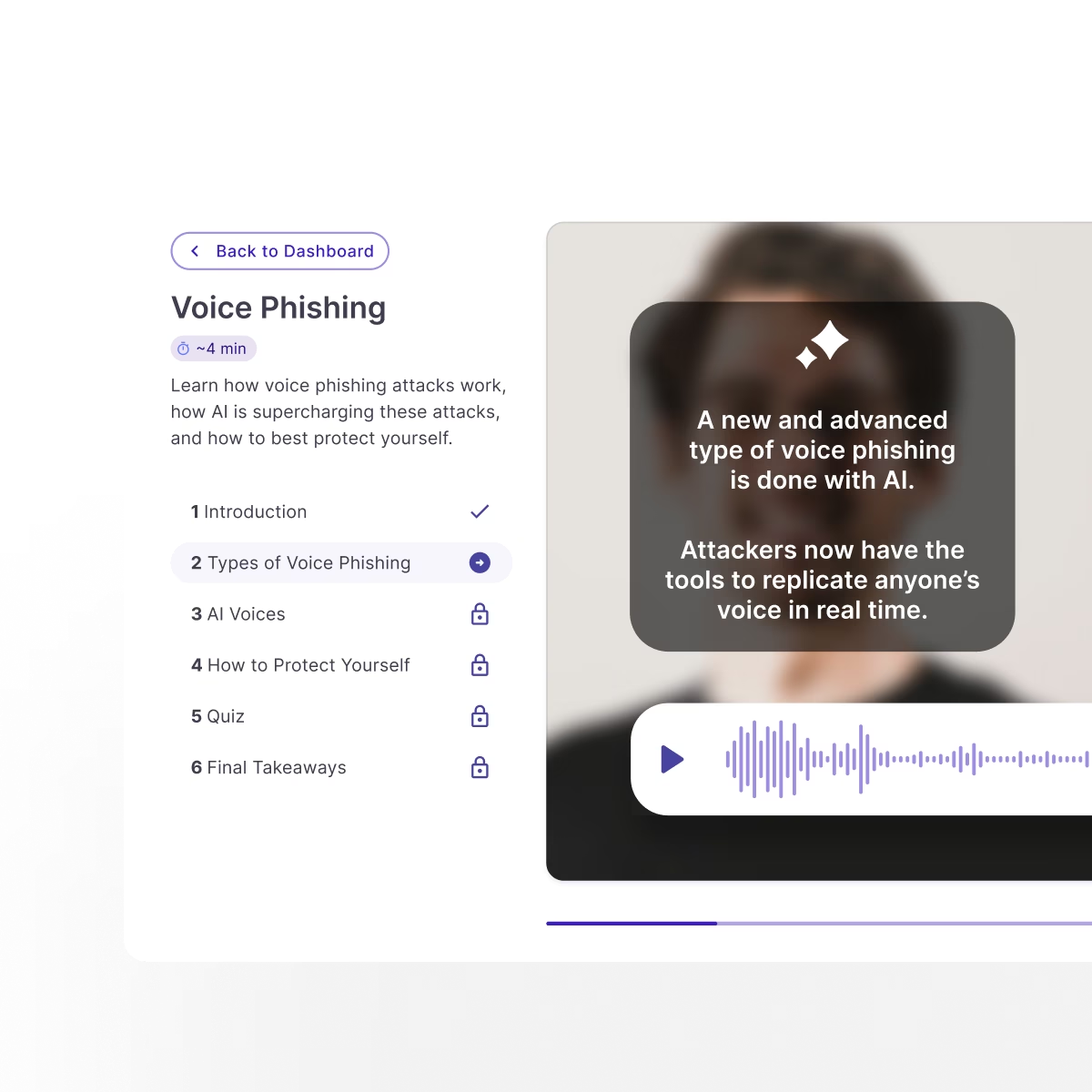
Key features and benefits:
- AI Content Creator lets you build hyper-relevant training modules tailored to industry, department, or compliance requirements in minutes. One finance leader shared, "I love the AI content creator. For once, I can actually easily make extremely specific content tailored to our company and industry."
- Advanced simulations replicate phishing emails, smishing, vishing, and deepfake impersonations of executives, giving teams realistic practice.
Michael Archuleta S, Chief Information Officer at Mt. San Rafael Hospital, said, "Seeing a deepfake of myself in the training? That's when it clicked that this isn't hypothetical. It's real, and my users need to be ready."
- Real-time analytics and risk tracking monitor vulnerabilities across all threat vectors. As Joshua Lopez, SVP, First State Bank, noted, "With Adaptive, we can track our risk levels across all threat vectors, including deepfake voice, SMS, and generative AI email."
- Clean, intuitive admin portal saves time for training program owners. One CISO said, "There's no need to dig through mountains of fluff to get to the information I want. Super easy to use, and their customer support has been second-to-none."
- Integration with 30+ enterprise systems enables fast deployment and minimal disruption. A vCISO highlighted how "the 'More Urgency' button in AI scenario generation using OSINT allows us to create custom and relevant phishing simulations that are exactly what a threat actor would do ... Deepfake awareness training modules are lightyears ahead of anyone else I’ve seen."
- Responsive support and continuous innovation keep the platform evolving. One financial user summed it up: "Adaptive Security software hits all the marks I was looking for ... Innovative, easy to use, constantly updated, integrates with all our products, and most importantly—super easy to implement."
Limitations:
- Newer platform compared to long-standing legacy solutions.
Who Adaptive Security is best for: Forward-thinking organizations of any size wanting a modern, all-in-one platform to protect against AI-enabled attacks while reducing human risk across the business.
2. KnowBe4
KnowBe4 is one of the most recognized names in security awareness training, offering a vast library of content and frequent phishing tests.
Key features and benefits:
- An extensive library of training modules and phishing templates.
- Strong content focused on compliance training on standards like HIPAA and GDPR.
- User-friendly dashboard for administrators.
Limitations:
- Content often feels outdated and not relevant to modern AI-powered threats.
- UI and UX feel dated and are not built for a modern workforce.
- Training paths have very limited personalization options.
- An enterprise user noted, “The training is great for beginners, but for more experienced or technical employees, the modules can feel too simplistic or repetitive … the dashboard isn’t always intuitive, and the overall design feels a bit outdated.”
Who KnowBe4 is best for: Mid-to-large enterprises with heavy compliance requirements that need broad, traditional training content.
3. Proofpoint
Proofpoint leverages its deep threat intelligence to inform its training solution, making it a solid option for industries at high risk of attack.
Key features and benefits:
- Training integrates with Proofpoint’s broader ecosystem.
- Real-world attack simulations and role-based training modules.
Limitations:
- Higher price point compared to other platforms.
- Complex interface that may require dedicated training for administrators.
- Content and user interface feel outdated to some clients.
- A system engineer shared, “The product is clunky and poorly integrated into the rest of Proofpoint's platform/services …Trainings are generic and not customizable.”
Who Proofpoint is best for: Large enterprises in the finance, healthcare, and government sectors that need threat intelligence–backed training.
4. Cofense PhishMe
Cofense PhishMe specializes in phishing defense, providing a platform intensely focused on mitigating email-based threats.
Key features and benefits:
- Phishing simulations and user-driven reporting tools help employees recognize malicious emails.
- Integrates with various threat response platforms to streamline remediation.
Limitations:
- Narrow training scope with a heavy focus on email phishing that neglects other threats.
- Lacks broader training simulations and has limited content for non-technical users.
- One user reported, “Drawbacks of Cofense PhishMe may encompass … potential user weariness due to repetitive phishing simulations and the resource-intensive task of administering training initiatives.”
Who Cofense Phishme is best for: Organizations whose primary and almost exclusive concern is email security and traditional phishing attacks.
5. Infosec IQ
Infosec IQ provides a well-rounded training platform featuring over 2,000 awareness resources and tools designed to enhance learner engagement.
Key features and benefits:
- SCORM-compliant training modules support easy integration into existing learning systems.
- Automated campaigns, reminders, gamification, and assessments keep employees engaged.
Limitations:
- User interface feels outdated.
- Limited analytics depth compared to competitors.
- An IT user mentioned, “[The] phishing template selector is very clunky and overwhelming.”
Who Infosec IQ is best for: Small and medium-sized businesses and institutions looking for training focused on compliance and user engagement.
6. Mimecast Awareness Training
Mimecast offers concise, informative training videos that combine humor with important topics, keeping employees engaged and informed.
Key features and benefits:
- Short, digestible, and entertaining lessons.
- Integrates directly with Mimecast’s email security platform.
Limitations:
- Limited customization options.
- More focused on general awareness than on building practical, verifiable skills.
- One user noted, “I think the interface for the training section is confusing and can get streamlined.”
Who Mimecast is best for: Companies looking for highly engaging, lightweight training content.
7. Arctic Wolf
Security awareness training with Arctic Wolf is centered on providing short, purpose-driven content relevant to the current threat landscape.
Key features and benefits:
- Effective, realistic phishing simulations based on current cyber threats.
- Content designed to address specific and timely attack methods.
Limitations:
- Doesn’t offer measurements of test results.
- Relies on manual setup.
- Lacks the ability to create fully customized phishing simulations.
- A security admin shared, “Reporting capabilities could be enhanced … report customization is very limited.”
Who Arctic Wolf is best for: Organizations that need a basic training platform but have the resources to manage high manual support requirements and limited control.
8. Huntress
Known for its unique storytelling approach, Huntress uses narrative and recurring characters to foster an emotional connection to the training material.
Key features and benefits:
- Story-driven modules with characters for high user retention.
- Simple, intuitive interface that makes navigation straightforward for learners and administrators.
Limitations:
- Smaller content library compared to many alternatives.
- Narrative style may not suit organizations that require deep technical training.
- A network engineer commented, “Animations can be fun and easy at times, but this almost felt like I was teaching cybersecurity to my son through PBS Kids and cartoon shows.”
Who Huntress is best for: Startups, small and medium-sized businesses, and creative teams that prefer a narrative-based learning experience.
9. NINJIO
NINJIO stands out by producing Hollywood-style, micro-learning episodes based on real-world security breaches, updated weekly.
Key features and benefits:
- High production value with content inspired by recent, real-world attacks.
- Weekly episode releases keep training fresh and relevant.
Limitations:
- An entertainment-first approach often lacks technical depth.
- Limited interactivity and assessments to verify learning.
- An admin user shared, “NINJIO’s new admin interface could use some work. The interface is not intuitive at all and feels like functionality is missing.”
Who NINJIO is best for: Organizations that want to prioritize employee engagement and cultural buy-in above deep technical training.
10. SANS Security Awareness
As a highly respected name in cybersecurity education, SANS provides deep-dive training suitable for both general end users and specialized technical staff.
Key features and benefits:
- Content developed by leading security experts.
- Deep technical modules combined with strong tools for compliance and policy management.
Limitations:
- High learning curve for non-technical users.
- Expensive option, particularly for smaller organizations.
- A cybersecurity director noted, “The fact that the users are shared between the phishing module and the security training is a bit cumbersome.”
Who SANS is best for: Large enterprises with high security maturity or those in regulated industries requiring expert-level, in-depth training.
11. Hoxhunt
Hoxhunt delivers personalized security awareness training by adapting phishing simulations and learning modules to each employee’s behavior and skill level.
Key features and benefits:
- Adaptive simulations that adjust difficulty based on individual performance.
- Gamification elements, including leaderboards and scoring, to encourage participation.
- Micro-training modules for quick, targeted lessons without disrupting workflow.
Limitations:
- Frequent simulations can become repetitive for experienced users.
- Limited flexibility in customizing training paths or scheduling simulations.
- A software developer commented, “I wish the platform offered more flexibility in customizing training paths … the dashboard UI could be more intuitive when trying to track long-term progress.”
Who Hoxhunt is best for: Organizations seeking an adaptive, gamified approach to training that evolves with each employee’s progress.
12. MetaCompliance
MetaCompliance delivers engaging security awareness training alongside robust policy management tools, helping organizations align education with compliance requirements.
Key features and benefits:
- Wide range of interactive training content that covers phishing, compliance, and cyber hygiene topics.
- Integrated policy management features for tracking employee acknowledgment and compliance.
- Customizable phishing simulations to reflect organizational risks.
Limitations:
- Admin interface can feel clunky and unintuitive, creating a steep learning curve for new administrators.
- Reporting capabilities are limited compared to other platforms.
- An IT manager explained, “We had and still have regular issues with users ending up on suppression lists, which means that they will not receive emails from MetaCompliance."
Who MetaCompliance is best for: Firms that want to combine security awareness training with policy management in one platform.
13. SoSafe
SoSafe offers a gamified approach to security awareness training, combining interactive modules with phishing simulations to reinforce secure user behavior.
Key features and benefits:
- Gamification features encourage participation and track progress across training modules.
- Interactive phishing simulations help employees recognize and respond to threats.
- Multi-language support to accommodate global teams.
Limitations:
- Some lessons can feel repetitive in concept and format.
- Limited customization options for tailoring the platform to specific organizational needs.
- A senior automation engineer noted, “After a few months the quiz format feels predictable, and missing one question means re-answering them all.”
Who SoSafe is best for: Organizations that want to boost engagement through gamified training while reinforcing phishing awareness.
14. Phished
Phished delivers continuous, automated security awareness training and phishing simulations to help organizations strengthen employee readiness year-round.
Key features and benefits:
- Automated phishing simulations tailored to individual learning progress.
- Continuous learning model through the Phished Academy to reinforce knowledge.
- Analytics dashboard tracks performance trends and areas for improvement.
Limitations:
- Some training content may not be relevant to all industries or regions.
- Limited flexibility in adjusting training frequency without affecting platform scoring metrics.
- An IT security consultant explained, “The biggest drawback is the limited export options for reports … expanding this to include formats like PDF or Excel would significantly improve usability.”
Who Phished is best for: Enterprises seeking a fully automated, continuous training approach to keep security awareness top of mind.
15. ESET Cybersecurity Awareness Training
ESET Cybersecurity Awareness Training offers structured learning modules and phishing simulations designed to reduce human risk and improve overall security posture.
Key features and benefits:
- Comprehensive course library covering a wide range of security topics.
- Integrated phishing simulations to test and reinforce learning.
- Easy integration with existing IT infrastructure for deployment and tracking.
Limitations:
- Higher cost compared to some competing solutions.
- A user noted, “The dashboard to assign users to courses was a bit complicated to use at first.”
Who ESET is best for: Organizations that want to combine trusted endpoint protection with robust employee security training.
Security awareness tools comparison chart
Choosing the right platform often comes down to how features stack up side by side. This chart provides a quick comparison of core capabilities across the leading security awareness training tools.
How to choose a security awareness training software service provider
Selecting the right provider starts with understanding your organization’s specific needs. The right SAT software should deliver relevant, realistic training while making administration straightforward. Use these criteria to guide your decision:
- Threat coverage: Confirm the software addresses the full range of risks you face, including phishing, deepfakes, smishing, vishing, and social engineering. Adaptive covers all these vectors with advanced AI-driven simulations.
- Content quality and variety: Choose a platform that provides up-to-date, engaging modules combining videos, quizzes, simulations, and role-based training.
- Customization: Select a provider that allows you to tailor content, simulations, and learning paths for different roles, departments, and compliance requirements. Adaptive’s AI Content Creator is one example of flexible customization in action.
- Analytics and reporting: Look for strong analytics that track progress, identify high-risk users, and measure the impact of training over time. Adaptive offers a clean dashboard with a human risk score and detailed training performance metrics, making it easy to monitor vulnerabilities and completion rates across all campaigns.
- Ease of use: Opt for a solution with an intuitive interface—for both administrators and learners—to reduce friction and speed up adoption.
- Integration: Ensure the platform works with your existing systems, such as Microsoft 365, Google Workspace, or your learning management system.
- Support and service: Select a provider with responsive customer support that can resolve issues quickly and guide you through onboarding.
- Scalability: Choose a solution that can grow with your organization without adding unnecessary complexity.
Taking the time to match these factors with your requirements will help you invest in a platform that not only raises awareness but also changes behavior and strengthens your organization’s overall security posture.
The bottom line: Why Adaptive excels as a SAT software solution
With phishing, deepfakes, and AI-driven attacks bypassing traditional filters, you need AI training that reflects the cybersecurity threats your employees face every day. Adaptive meets this challenge with realistic simulations, behavioral insights, and real-time analytics that give leaders clarity and control.
As Jake Kienholz, Information Security Director at Core, shares, “Adaptive is the best security awareness training product I’ve used! Feedback from employees has been overwhelmingly positive.” His results echo what many organizations see: training that connects with employees, delivers measurable improvements, and builds resilience across the workforce.
If you want training that truly reduces human risk—and a partner who helps you prove it—book a demo today and see how Adaptive can raise your team’s defense to the next level.
FAQs about security awareness training software
What is security awareness training software?
Security awareness training software teaches employees how to spot and respond to threats as they happen, building human resilience rather than relying on firewalls or filters. Short lessons, realistic simulations, and quick assessments let employees practice safe online behavior. This makes your entire organization less vulnerable to phishing, scams, and other cyberattacks.
How does security awareness training software work?
The software trains employees through interactive videos, quizzes, phishing tests, and real-world scenarios. Going beyond lessons, it tracks behavior, measures progress, and adapts training to close knowledge gaps or meet compliance needs. This constant cycle of practice and feedback allows employees to sharpen their skills and spot threats before they turn into real problems.
What’s the best security awareness training software solution?
The best choice is the one that not only prepares your team for today’s evolving threats but also fits naturally into how your organization already works. Adaptive Security stands out here.
The platform offers advanced simulations, real-time analytics, and intuitive dashboards that keep everyone engaged—from managers tracking progress to employees learning in the flow of work. When used consistently, Adaptive helps strengthen resilience, lower human risk, and cut down the chance of costly breaches.




As an avid writer and startup enthusiast, Eitan became acutely aware of how bad actors might misuse AI to breach organizations and cause immense disruption.
Contents
